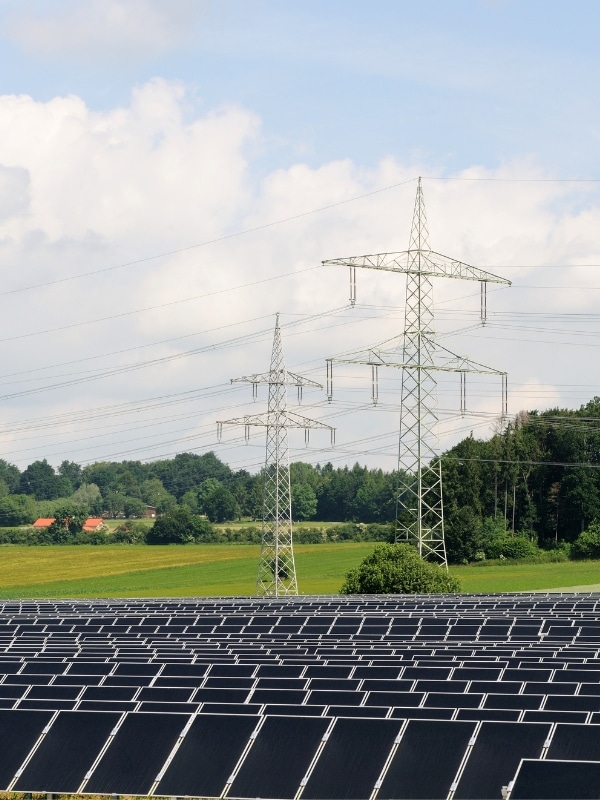The Function of Sun Panels in Reaching Power Independence
Australia, the land of sunshine, boasts some of the highest solar radiation levels globally. This natural abundance positions the country perfectly to harness the sun’s power and become a leader in energy independence. Solar panels, the technology that converts sunlight into electricity, are pivotal in transitioning towards a more sustainable and self-sufficient energy future.
Ready to upgrade your solar systems and take your energy savings to the next level? Embrace the energy efficiency revolution by upgrading your solar systems and adding solar battery storage, inverters, and more with Energy Matters. Energy Matters has been recognised for its continued excellence in the Australian solar industry. We provide our customers with high-quality resources, insight, and access to reputable solar quotes.
With Energy Matters’ 3 free solar quotes, you can compare plans from pre-qualified and vetted installers in your area and find the perfect solution for your home and business. Harness the sun’s power and save money on electricity bills while reducing environmental impact. Let Energy Matters guide you towards a brighter, more sustainable future.
Why solar panel independence matters for Australia
Australia’s abundant sunshine makes solar panels a perfect solution for achieving energy independence. By harnessing the sun’s power, homes and businesses can generate clean electricity, reducing reliance on the traditional grid and fossil fuels. This shift towards energy independence with solar brings many benefits, including lower electricity bills, a minimised environmental footprint, and increased energy security, all while contributing to a more sustainable future for Australia.

Benefits of solar power for energy independence
Solar panels offer a multitude of advantages that fuel Australia’s journey towards energy independence:
- Reduced reliance on the grid: Homes and businesses with solar panels generate electricity, lessening their dependence on the traditional grid. This reduces reliance on fossil fuels and safeguards against fluctuating energy prices.
- Financial savings: The upfront cost of installing solar panels has decreased significantly in recent years. Additionally, government incentives and feed-in tariffs compensate homeowners for excess electricity fed back into the grid and contribute to substantial financial savings over time.
- Cost savings on electricity bills: Generating your electricity with solar panels significantly reduces reliance on the grid, leading to long-term savings on electricity bills.
- Economic benefits: Australians can reduce their dependence on the grid and the associated costs by generating clean energy. This can lead to significant savings on electricity bills, particularly as traditional energy prices continue to rise.
- Reduced reliance on fossil fuels: Solar power generation reduces dependence on traditional energy sources, lessening the environmental impact and price fluctuations associated with fossil fuels.
- Environmental sustainability: Solar power is a clean and renewable resource. Unlike fossil fuels, solar energy production doesn’t generate harmful greenhouse gas emissions, contributing to a cleaner environment and the fight against climate change.
- Increased energy security: With a solar energy system, homes and businesses become less susceptible to disruptions in the primary grid, offering greater control over their energy needs.
Solar power: A shining beacon
Australia’s geographical advantage, with its vast stretches of sunny land, makes it ideal for harnessing solar energy. This, coupled with government incentives and falling solar panel costs, has fueled a remarkable increase in solar power adoption.
- Solar take-up rates: Australia boasts the highest rooftop solar photovoltaic (PV) system installation rates globally. As of 2023, 5.9 GW of additional solar capacity were installed in Australia, setting a record. Of that, 3.1 GW came from rooftop solar and 2.8 GW from utility-scale generation. Source: Clean Energy Council 2024
- Cost-effectiveness: In recent years, solar panels have become a significantly more affordable technology. This, combined with government rebates and feed-in tariffs that incentivise solar power generation, makes solar a financially sound investment for homeowners and businesses.
- Technological advancements: Solar panels’ efficiency and affordability continue to improve. Additionally, advancements in battery storage technology allow households to store excess solar energy for use during peak demand hours or even at night, further increasing energy independence.
Achieving energy independence: Beyond rooftop solar
While rooftop solar plays a vital role in achieving energy independence, a holistic approach is necessary. Here’s how Australia is expanding its solar footprint:

- Large-scale solar farms: Australia is witnessing a surge in large-scale solar farms. These projects generate significant amounts of clean energy that feed into the national grid, reducing reliance on traditional sources.
- Community solar initiatives: Community solar projects allow individuals needing more suitable rooftops to participate in solar energy generation. These projects offer shared ownership of solar panels, enabling broader community participation in the clean energy revolution.
- Grid modernisation: Australia is investing in grid modernisation projects to fully integrate renewable energy sources like solar. These include improvements in energy storage infrastructure and smart grid technologies that optimise energy distribution and utilisation. Read more about How Solar Energy is Revolutionising the Australian Energy Market.
Solar power integration and battery storage
While solar panels generate clean electricity during daylight hours, nighttime energy needs still exist. Solar power can be integrated with battery storage systems to achieve a more complete state of energy independence. These batteries store excess solar energy generated during the day, making it available at night or during peak demand. With advancements in battery technology, achieving true energy independence with solar power becomes a more realistic possibility.
Use Energy Matters’ easy-to-use solar power and battery storage calculator to determine the size of your solar system with storage! Our solar calculator will generate performance information and potential savings.
We can send this information to 3 of our pre-vetted and trusted local installers in your area to receive obligation-free solar quotes.
Energy Matters’ recommended quality solar battery power systems such as (click the logo to learn more):
Government Initiatives and public support
The Australian government has promoted solar power adoption through various initiatives. These include financial rebates, feed-in tariffs, and streamlined regulations for solar system installation. Public support for renewable energy, particularly solar, is also high in Australia. This widespread acceptance creates a positive environment for further solar power development and contributes to achieving energy independence.
Read more about:
- Home Solar Rebates, Incentives & Subsidies In Australia
- Solar power incentives, loans & rebates for small business
- Solar Battery System Rebates, Subsidies, & Incentives
- Australian Solar Feed in Tariffs Information
- Solar Feed-in Tariff Comparison: Best Tariffs by State and Territory
- Renewable Energy Certificates (RECs) information
- Large-Scale Generation Certificates (LGCs)
Challenges and considerations
Despite the numerous benefits, achieving complete energy independence with solar power presents specific challenges. Weather variability, energy storage limitations, and grid integration require ongoing technological advancements and infrastructure development. Not all households have suitable roof space or financial resources for solar panel installation.
The future of solar power
The future of solar power in Australia is undeniably bright. As technology evolves, solar panels are becoming more efficient and affordable. Battery storage solutions are also improving, paving the way for a more comprehensive energy-independent future. With continued government support, public enthusiasm, and technological advancements, solar power has the potential to become the cornerstone of Australia’s energy independence strategy.

Ready to go solar? Get an instant assessment
To find out how much a solar system with storage or even an EV charger will cost, try our easy-to-use solar power and battery storage calculator! It will generate performance data and possible cost savings.
We can forward your information to 3 trusted local installers in your area to obtain free, no-obligation solar quotes.
Find out how much you can expect to pay for solar
The form can be filled in the actual website url.
Ready to find out more? Get FREE quotes for solar, batteries + more
The form can be filled in the actual website url.
*Prices quoted are to be used as a guide only and do not factor in state and other rebates and incentives. Includes STC discount.
Our Energy Matters CEO, Roshan Ramnarain, will feature stunning homes installed with the latest solar technology every Saturday at 5:00 p.m. on Open Homes Australia on the 9Life channel. Be sure to watch this show; you won’t want to miss it!

The post The Role of Solar Panels in Achieving Energy Independence appeared first on Energy Matters.











No Comments